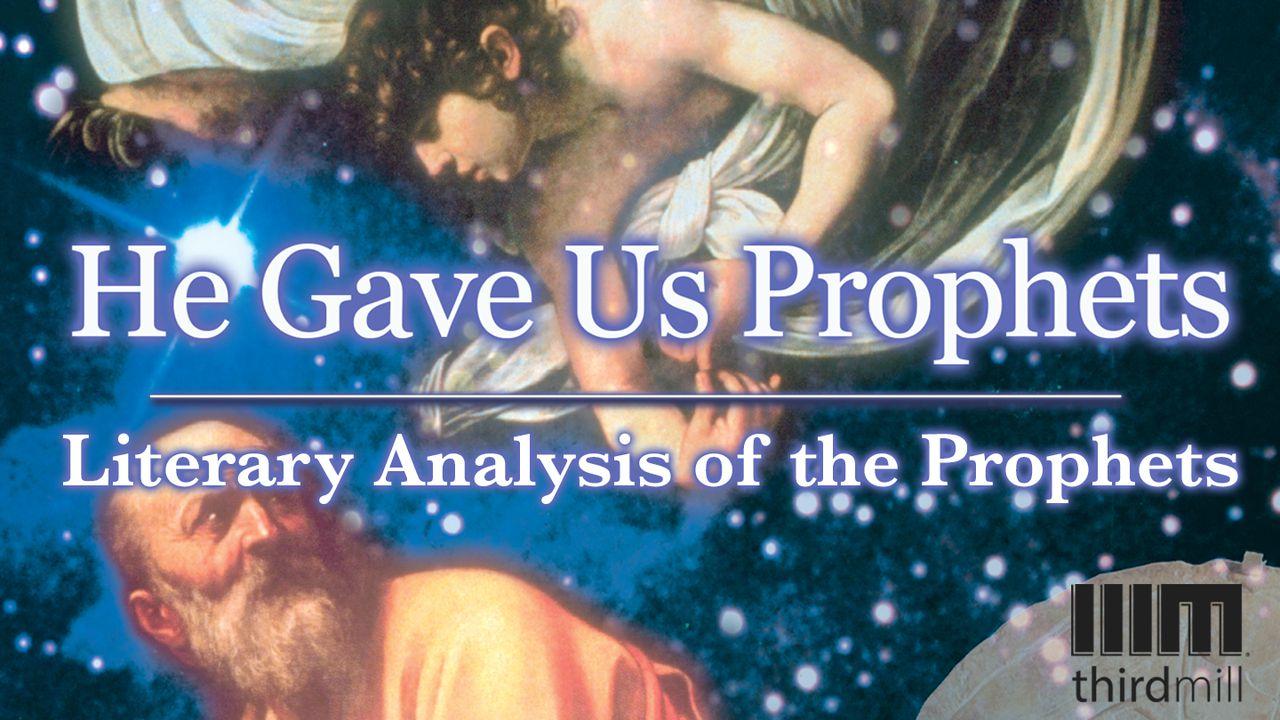He Gave Us Prophets: Literary Analysis Of The Prophets预览

Judgment Oracles: Micah 6:1-16
In addition to judgment and woe oracles, the prophets also pronounced covenant curses in the form of lawsuits. The Hebrew word rib (רִיב) is often associated with this form of speech. Normally, the term rib means “to contend” or “to strive,” but it took a special significance in the prophets. It indicates a legal striving. It’s a technical term for a legal proceeding or a lawsuit which took place in the heavenly court of Yahweh, the Great King.
We’ve already seen that the prophets often had visions of heaven, the heavenly throne room of God. And many times the throne room of God was seen as a courtroom, and as a result, legal terminology comes forth. God is seen as both the prosecutor and the judge. The witnesses are called against the people of God, and the people are the defendants who have been charged by God. Now, usually we don’t find a full-fledged lawsuit within the prophets, but many times we find what may be called modified lawsuits. A rib, or a lawsuit, may contain many elements. First, just as we would expect in a court scene, there is a summons to court. Witnesses are identified. Then God reviews how kind He has been to the accused, and some kind of response is often given, sometimes by the prophet himself. And then God’s accusation follows along with a sentencing.
One of the best examples of a full lawsuit appears in Micah 6:1-16. We hear the summons to court in verse 1. Consider what the Lord says:
Stand up, plead your case before the mountains; let the hills hear what you have to say.
Then in verse 2, the witnesses themselves are addressed:
Hear, O mountains, the Lord’s accusation; listen, you everlasting foundations of the earth.
Following this address to the witnesses, God reminds the court of His kindness to His people. In verse 3, we read these words:
My people, what have I done to you? How have I burdened you? Answer me.
Then Micah the prophet speaks on behalf of the people, responding to God’s question in humility in verses 6 through 8. He says in verse 6:
With what shall I come before the Lord and bow down before the exalted God?
Then, admitting the guilt of the nation, Micah concludes this in verse 8:
He has showed you, O man, what is good. And what does the Lord require of you? To act justly and to love mercy and to walk humbly with your God.
Following the prophet’s response, we find accusations in verses 10-12, and the sentencing in verses 13-16. Lawsuits, similar to this passage, appear in the prophets as one of the ways God accuses them and then threatens His people with judgment.
读经计划介绍

This reading plan examines three different kinds of literature within Old Testament prophecy: historical narratives, communication with God and communication with people.
More


